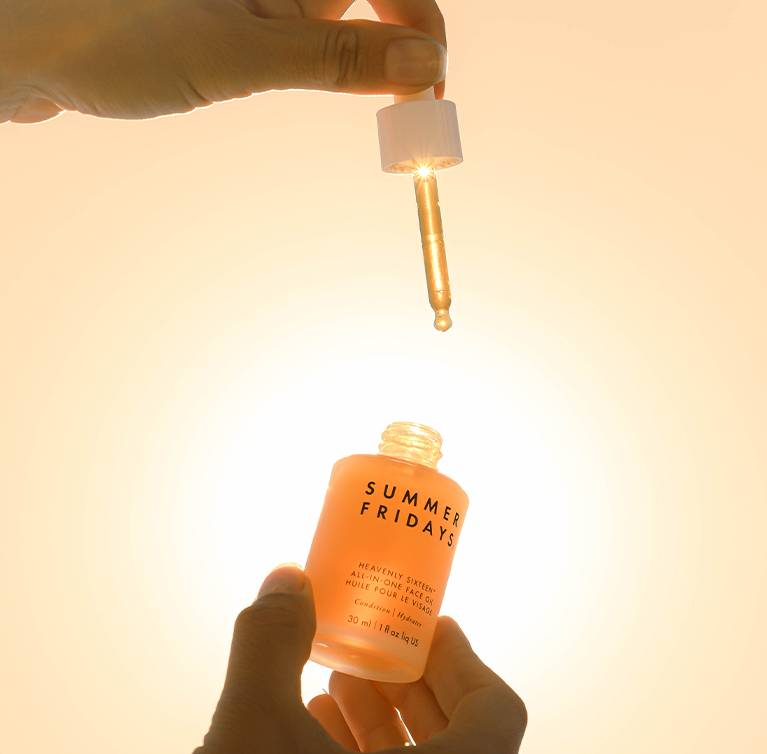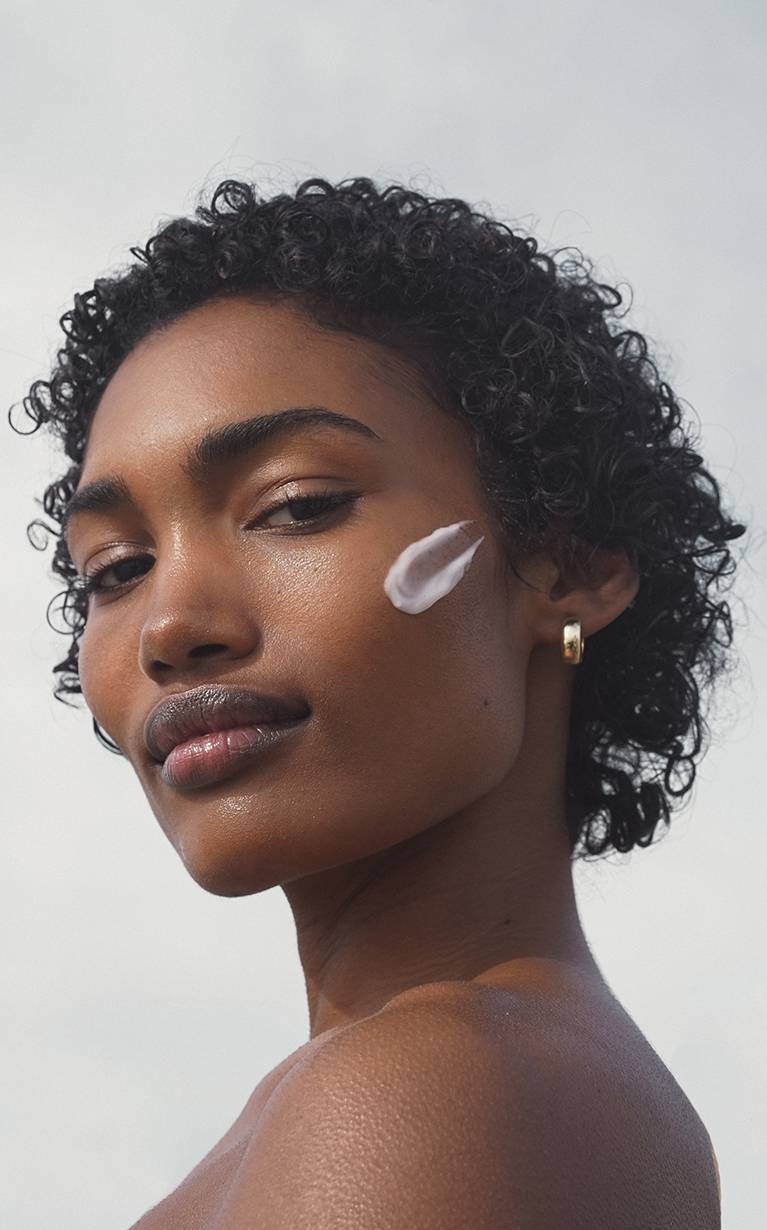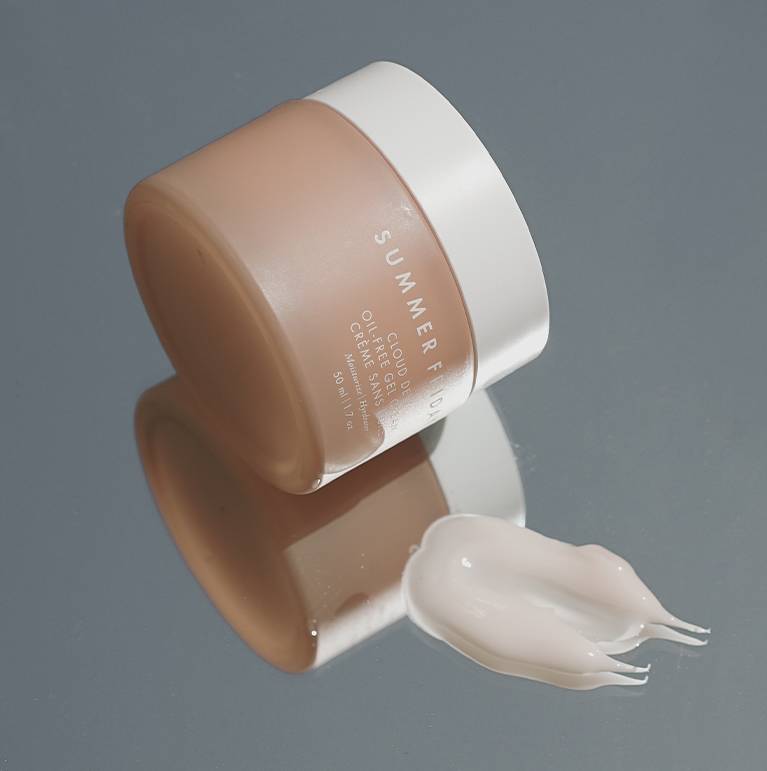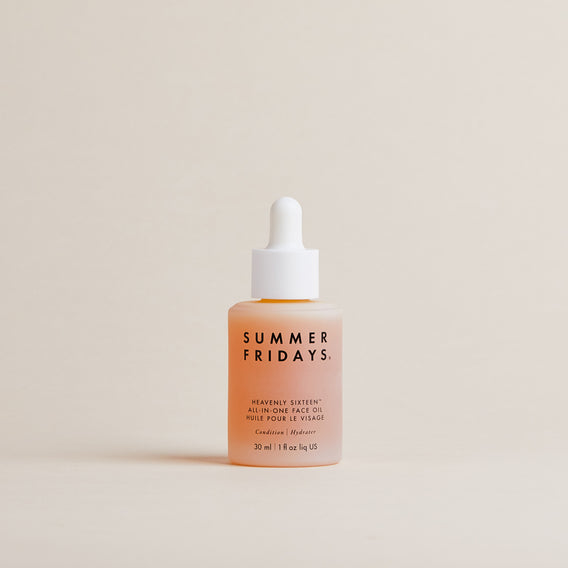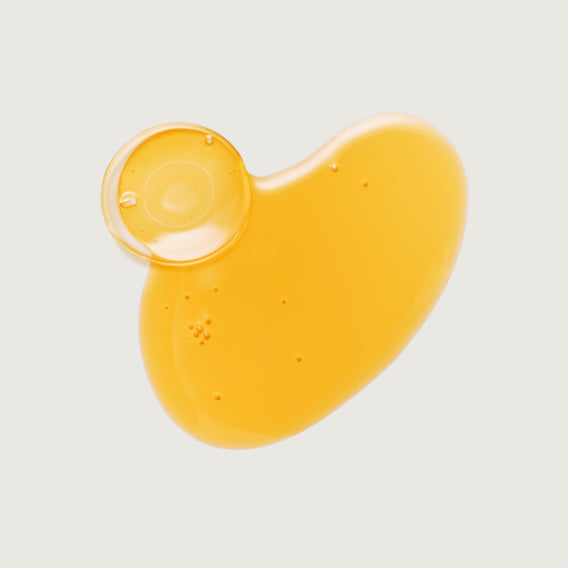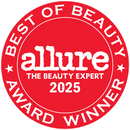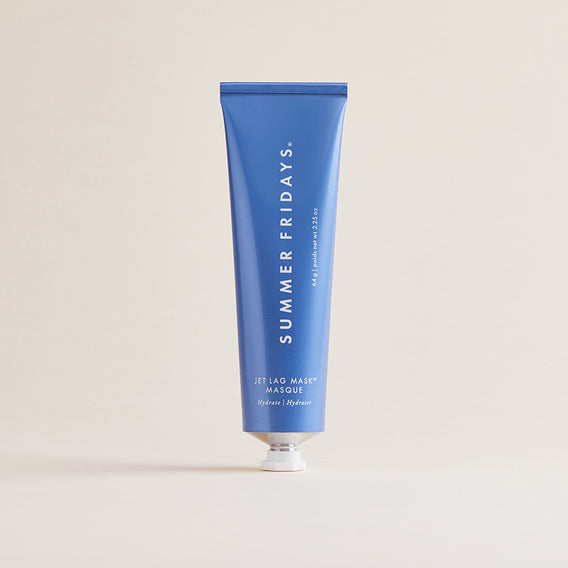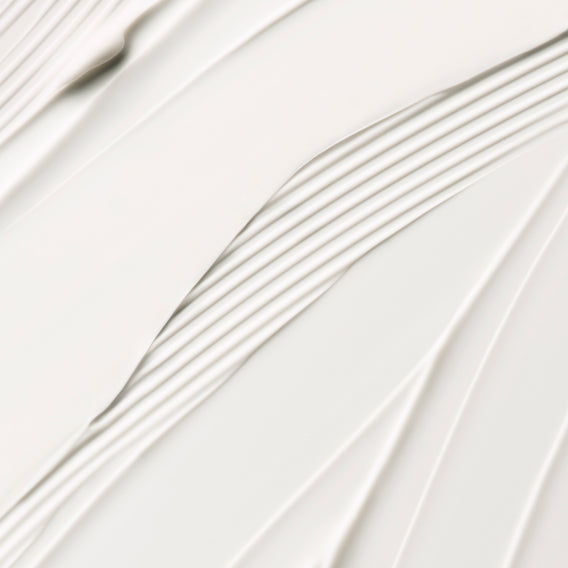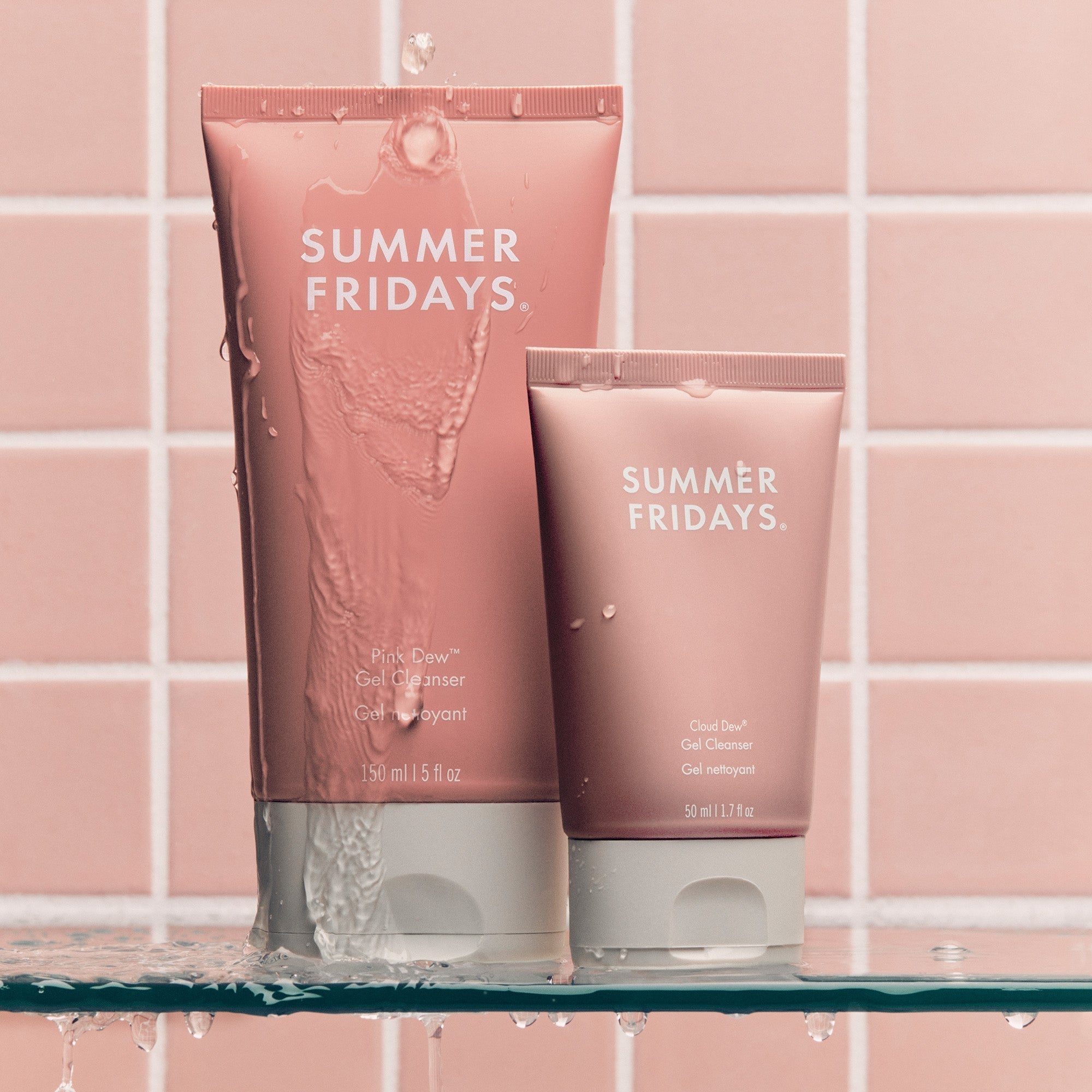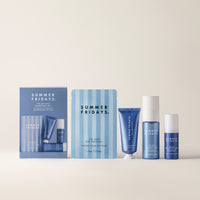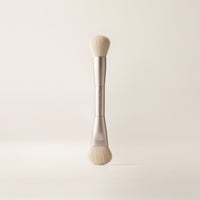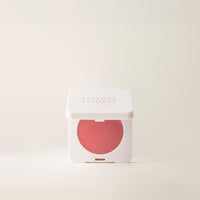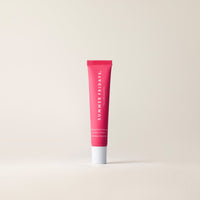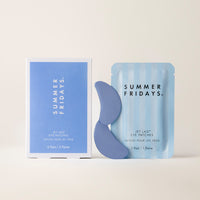Moisturizer vs. Hydrator
• Moisturizers are composed of occlusive ingredients that help your skin retain moisture. Water is not enough to provide your skin with the moisture it needs, and it usually evaporates within minutes of washing your skin. Oil-based ingredients (moisturizers) create a seal on the surface of the skin to prevent water from escaping, therefore keeping your skin hydrated. Moisturizers can also help your skin feel smoother. Examples of moisturizers include plant oils like jojoba, sunflower, and avocado oils that can be found in our Heavenly Sixteen All-In-One Face Oil, as well as petrolatum (petroleum jelly).
• Hydrators are humectants, otherwise known as ingredients that help attract moisture. Hydration often works from the inside out, so things like water intake (whether from drinking water or eating water-rich foods like cucumber and watermelon), as well as your environment, deeply impact your skin’s hydration level. The most well-known humectant ingredient in skincare is hyaluronic acid, which can attract and retain up to 1,000 times its weight in water and is a key ingredient in our best-selling Jet Lag Mask.

